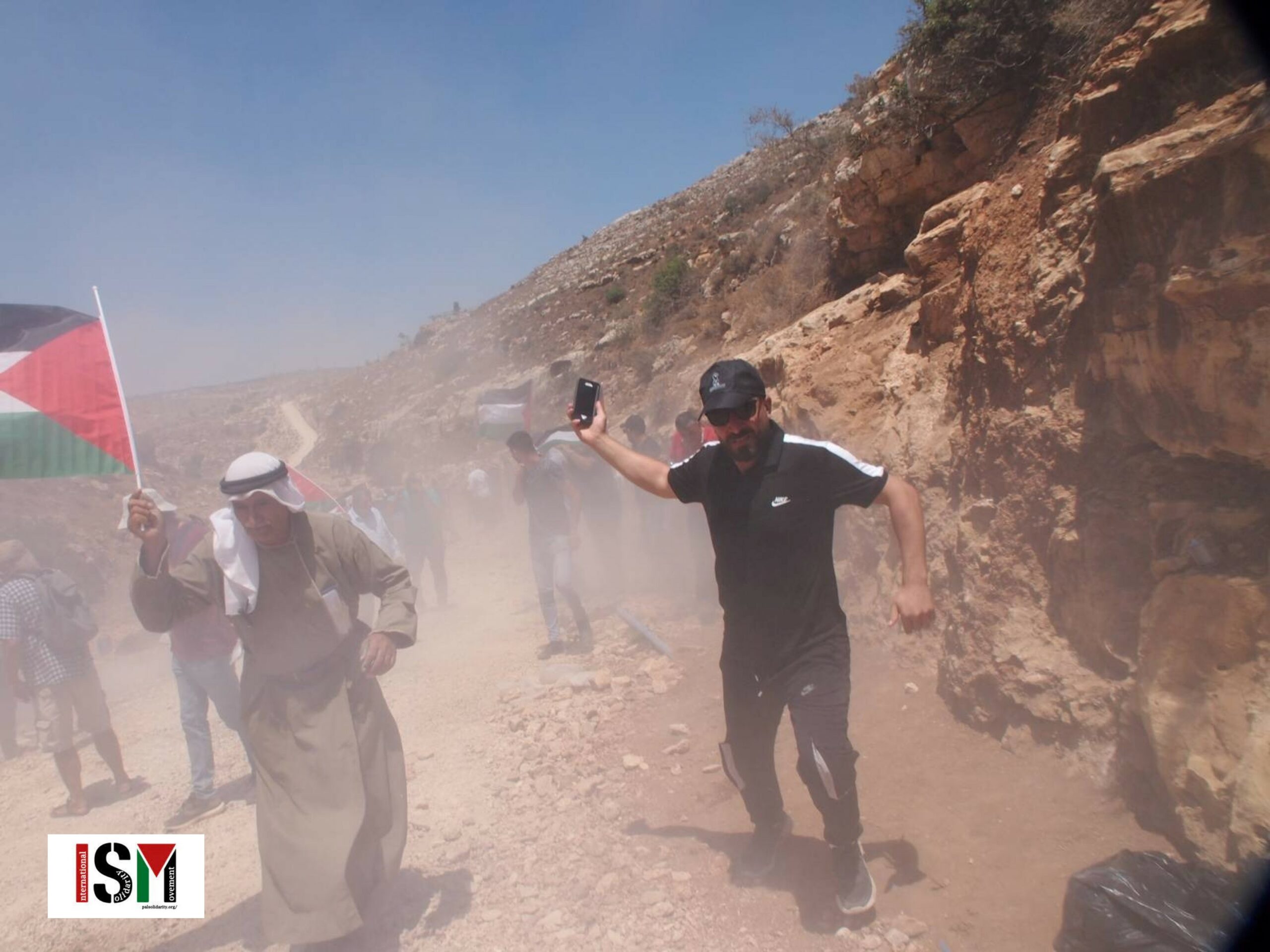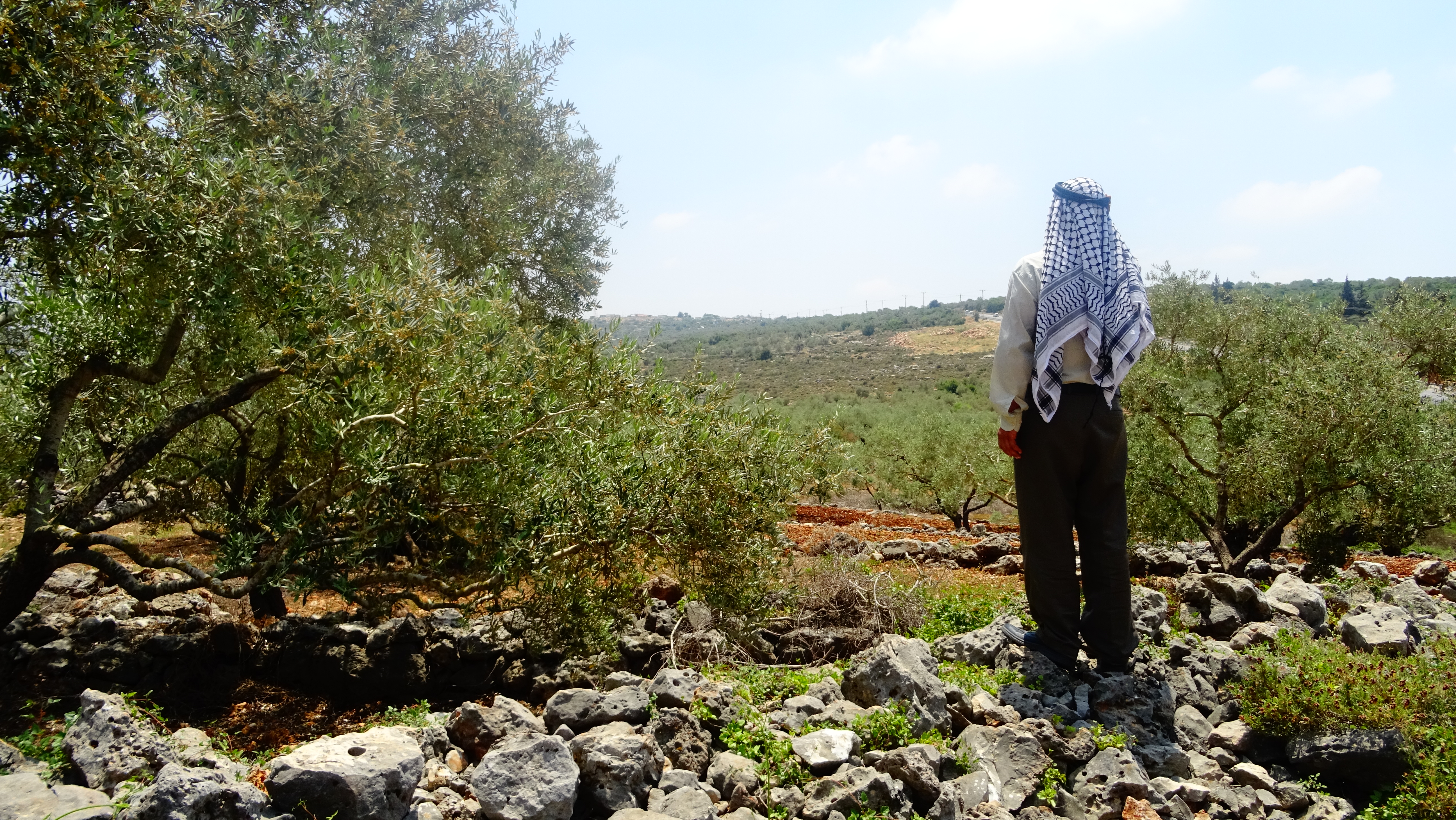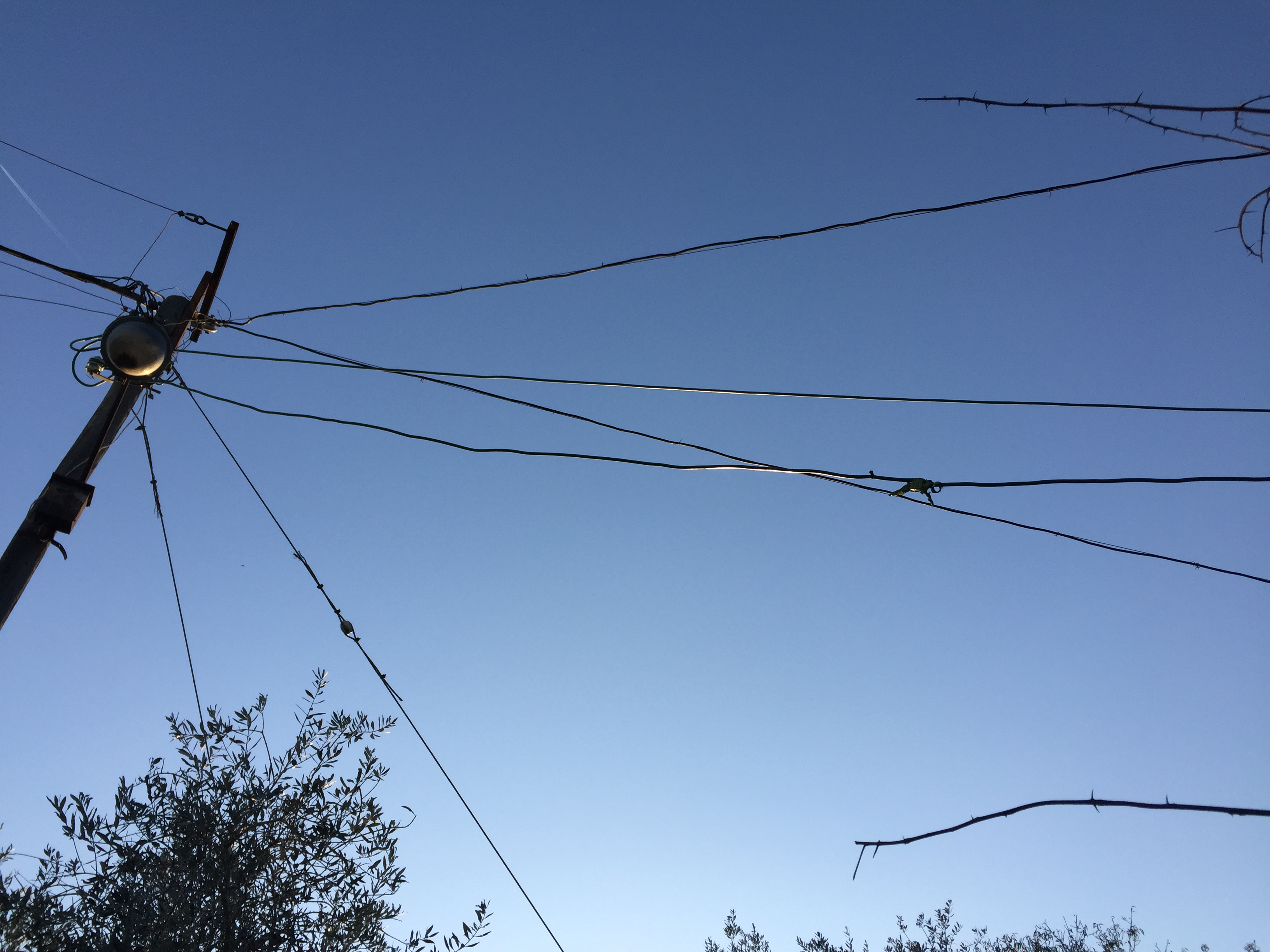Tag: Deir Istiya
-
Israeli army violently represses peaceful Friday demonstration
On Friday, August 4, a peaceful demonstration was violently attacked by the Israeli army around the West Bank village of Deir Istyia, Salfit governorate. About 30 Palestinians from Deir Istiya, including women, the elderly and children were on their way to the land north of the village, accompanied by a number of Israeli and international…
-
Palestinians denied passage for Friday prayer in Deir Istiya
6th May 2017 | International Solidarity Movement, Ramallah Team | Deir Istiya, occupied Palestine Yesterday, 5th May, for the second week in a row , a group of Palestinians gathered in the olive groves, just outside Deir Istiya, district of Salfit, for their Friday prayer. Before the prayer even started, a group of Israeli soldiers denied…
-
Israeli forces take a next step in threatening 3 families from Deir Istyia.
December 9th, 2015 | International Solidarity Movement, Huwwara team | Deir Istyia, occupied Palestine In the end of November we told the story of three families, living in the outskirts of Deir Istyia who were under daily threats and harassment from the Israeli forces. Now the threatening from the IOF has reached another level for…



